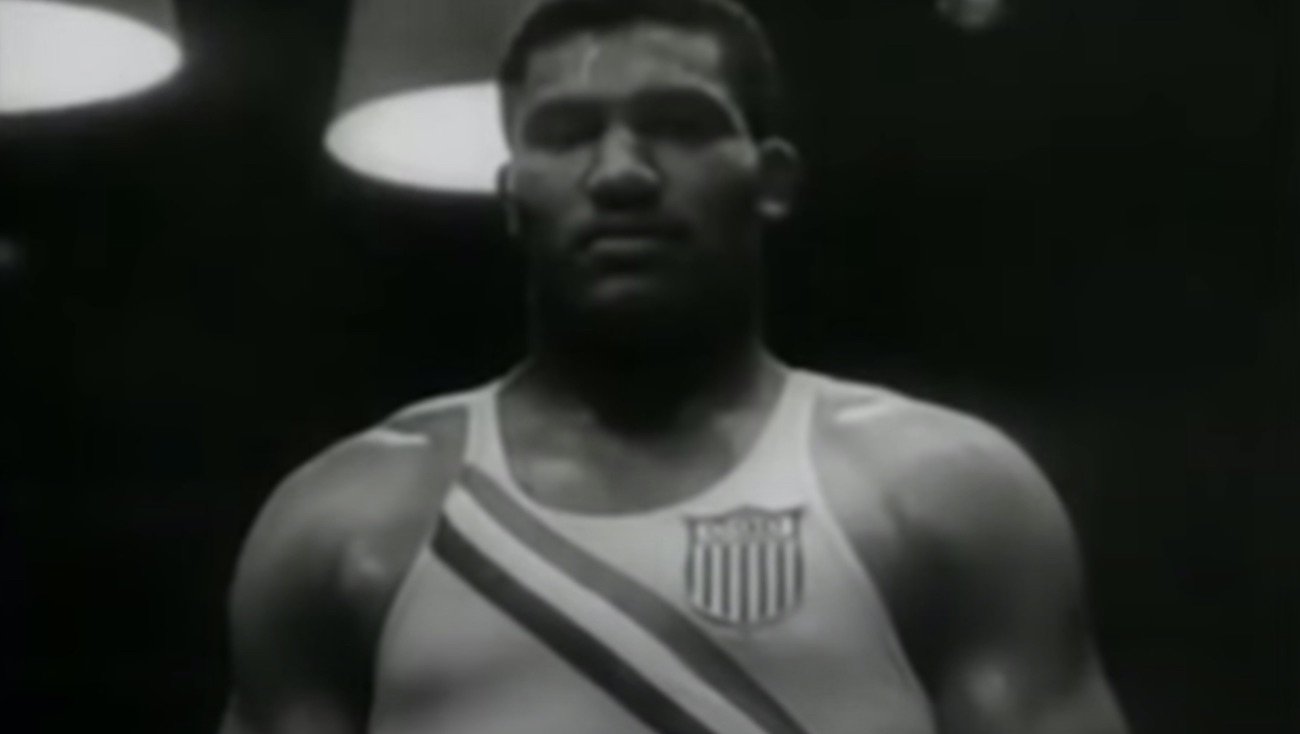There are a number of “forgotten fighters,” ring warriors who made their mark back in the day but then, for whatever reason or reasons, drifted out of the minds of the public. Ed Sanders’s name certainly belongs in this group. Sanders, who made boxing history way back in 1952, when he became the first African-American to capture an Olympic heavyweight gold medal, had an eventful if tragically short ring career.
Born in Watts, Los Angeles in March of 1930, Sanders would grow into a natural athlete. Standing 6’4” and getting into boxing shortly after being drafted into the Korean War, the young Sanders went on to win both the Los Angeles and the Chicago Golden Gloves. Sanders then fought in Europe, winning the Golden Gloves Tournament in Berlin. Sanders, known as “Big Ed,” was now ready to box at the Olympics in Helsinki.

Sanders, who had a fine jab, punishing power and great physical strength, took out his first three Olympic foes, this earning him a spot in the final. Sanders’s fight with Swedish hero Ingemar Johansson is the stuff of infamy. Johannson, doing nothing but move (or, according to the plentiful critics, “run”) for the first two rounds, was then disqualified in the third for “not trying.” The Swede was disgraced, humiliated. Johansson’s lack of effort was deemed to have been so bad, so awful, he was denied the silver medal (only receiving it some 30 years later).
These days, a talent like Sanders would have had the top promoters angling to sign him up, confident of making millions in the pro ranks. Instead, Sanders stayed amateur, unable as he was as a Navy man to turn pro. During this time, in March of 1953, Sanders fought a (listed) 21 year old Sonny Liston. Sanders fought the menacing, soon to be universally feared future heavyweight king, and he did it with a busted thumb, yet Sanders fought incredibly well. There is no footage of the bout, yet reports say Liston was jeered some for “clutching” the bigger, stronger Sanders, the Chicago Golden Gloves contest being a close affair. Some felt Sanders had done enough to have gotten the win.
A pro career began in March of 1954, and Sanders, now based in Boston and acting as his own manager as the Navy demanded of him if he wanted to go pro, was on his way. After scoring three KO wins, Sanders, still only 24 years of age, lost a decision to Willie Wilson. Sanders won the return, he was then held to a draw by Bert Whitehurst, later winning the return, before facing Willie James in December of ’54. Sanders had compiled a 6-1-1 pro ledger inside just seven months.

Prior to the James fight, Sanders had complained of headaches and he also underwent a shoulder X-ray. James, the reigning New England heavyweight champ, was also Sanders’s regular sparring partner. Sanders was heavily favored to win the fight on December 11. The two men traded heavy leather for ten rounds, both taking punishment. Then, in the 11th, Sanders was sent to the canvas, landing on his right side, unable to breathe properly. Stretchered from the ring at The Boston Garden, Sanders never regained consciousness and after surgery to relieve pressure from his brain he sadly died. Doctors stated how they felt a previous brain injury had been aggravated in the James fight. Ed was laid to rest with full military honours. He was just 24.
Who knows how far Sanders could have gone had he been handled better if he had been smiled upon with improved good luck. As it is, “Big Ed” Sanders should be remembered for what he managed to achieve at the Olympic Games way back in 1952.
